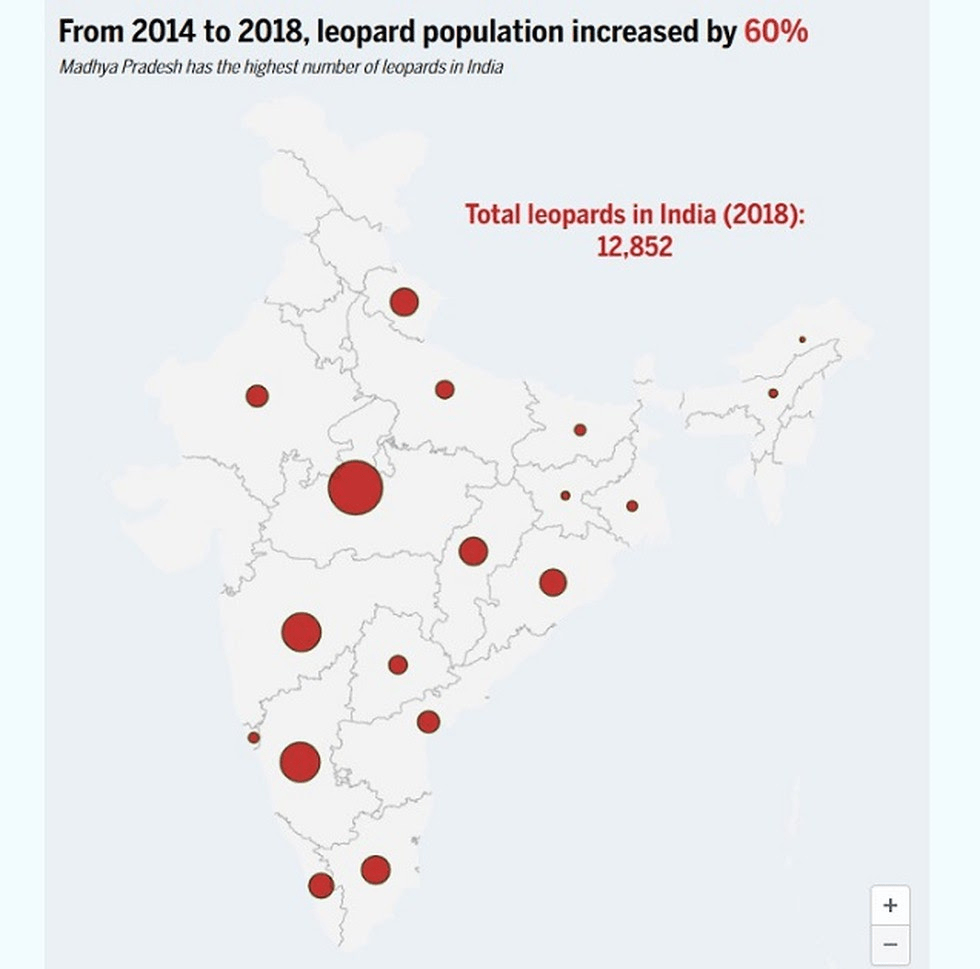UPSC Articles
Status Of Leopards Report released
Part of: GS Prelims and GS-III – Environment; Biodiversity
In news
- Union Minister for Environment released the Status of Leopards report.

Key takeaways
- The leopard population has been estimated using camera trapping method.
- There are 12,852 leopards in India as of 2018 as compared to the previous estimate of 7910 conducted in 2014, an increase of 60% in 4 years.
- The highest concentration of the leopard in India is estimated to be in Madhya Pradesh (3,421) followed by Karnataka (1,783) and Maharashtra (1,690).
- Recent meta-analyses of leopard status and distribution suggest 48–67% range loss for the species in Africa and 83–87% in Asia.
- In India, leopards have experienced a possibly human-induced 75-90% population decline in the last ~120-200 years.
- In Indian subcontinent, poaching, habitat loss, depletion of natural prey and conflict are major threats to leopard populations.
- All these have resulted in changing the species status from ‘Near Threatened’ to ‘Vulnerable’ by the IUCN.
- As for region-wise distribution, the highest number of 8,071 leopards were found in central India and eastern ghats.
- In the northeast hills, there are just 141 leopards.
Do you know?
- The leopard was estimated across forested habitats in tiger range areas of the country but other leopard occupied areas such as non-forested habitats, higher elevations in the Himalayas, arid landscapes and majority of North East landscape were not sampled.
- Therefore, the population estimation should be considered as minimum number of leopards in each of the landscapes.














